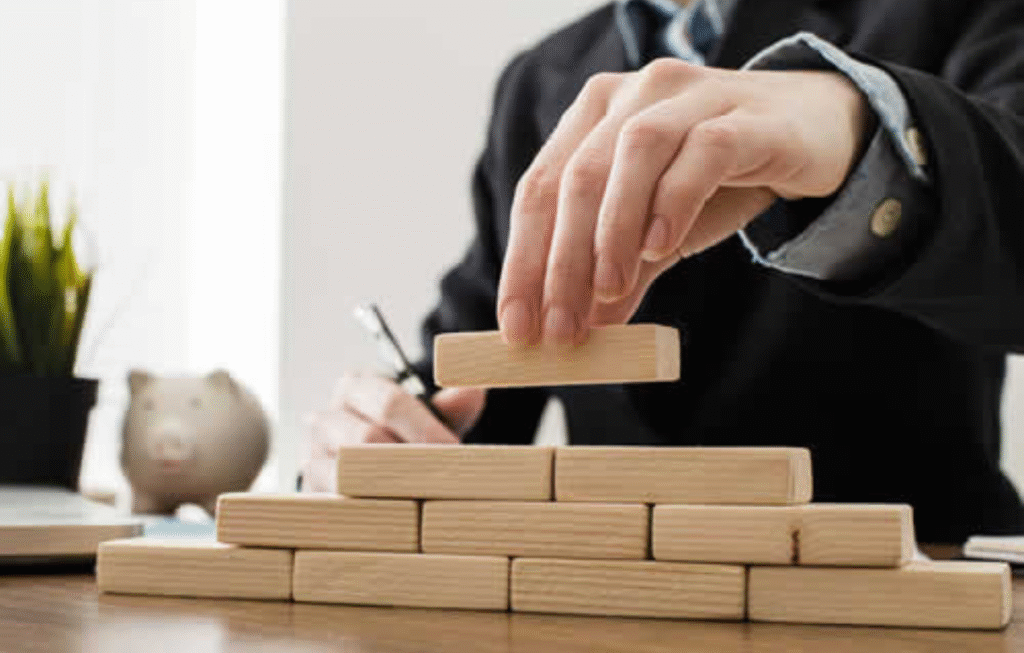East Orange Soccer Academy, or EOSA, is not only a soccer training academy—it’s a gateway through which children’s dreams are spread their wings. Each child, 5 or 18 years old, arrives here with a dream.
Others dream of being captain of the school team, while others hope to play in college, and others even hope to become professional soccer players and leave their own mark on the pitch.
EOSA’s objective is not simply to learn children the sport, but to prepare them to succeed off the field as well as on. Training here is founded on the belief that “good players are made not just by hard work, but by proper guidance, balance, and confidence.”
A Strong Foundation—The Importance of the Early Years

Every great player was a kid at some point. And this is the age when guidance is essential. Training at EOSA starts very early—5 years old.
Children are not made to compete in these early years. Instead, they are made to love the game. Because only when the kid starts loving the game do they really start learning.
What is learned in early training?
Ball control: Touching the ball with their feet, controlling it, and passing it in the correct direction.
- Coordination: Body coordination—e.g., passing or changing direction quickly while running.
- Teamwork: Playing in partnership with other players, recognizing shared responsibility.
- Fair play: Sportsmanship being more valued than victory.
EOSA’s “Little Kickers” and “Junior Skills” programs are both fun and learning for kids. For instance, kids learn passing through games such as “Ring Pass the Ball” or practice their knowledge of dribbling through “Cone Running.”
The intent of this phase is to have kids feeling good and excited—to want to come to the field every day.
Preparing for High School Soccer—The Start of Discipline and Confidence
When kids are aged 10–13, the game is no longer for play. They now enter the realm of competition. EOSA’s Youth Development Program is tailored for these players.
This phase readies them for school teams or local leagues, where athleticism, strategy, and mental toughness are pushed to their limits.
Technical and Tactical Training
In this phase, players are taught that soccer is not all running and whacking—it’s thinking, comprehension, and decision-making.
EOSA trainers instruct players:
- how to identify their position on the field,
- how to respond to the strategy of their opponents, and how to pass or shoot at what time.
- Training matches and games such as “4v4” provide players with the experience of an actual match.
Fitness and Mental Toughness
- Players are required to play 60 to 90 minutes continuously at the high school level, so EOSA focuses more on fitness.
- Two days a week are reserved for agility, speed, and endurance training.
- But strength of mind is equally significant, not physical strength alone. Coaches also learn kids how to bounce back from failure, how to stay cool under pressure, and how to maintain team spirit.
Managing Studies and Sports
- EOSA realizes that every kid is a student before being an athlete. Thus, training timetables are designed to fit school sessions.
- Training is conducted at night or on weekends so the children will have time for both.
- Coaches are teaching the kids time management and discipline—characteristics which will come in handy in college and later life.
- Preparation for College Soccer—The Actual Phase of Competition
Ages 14–18, the players now push their game up another level. EOSA’s Advanced and Competitive Program gears them up for college or university-level competition.
College-Like Training
Practices are conducted four to five times a week, with each practice taking about 90 to 120 minutes.
Each practice session consists of:
- Technical Training: Passing skills, ball control through dribbling, and shooting accuracy.
- Tactical Awareness: Playing in various formations (4-3-3, 4-2-3-1, etc.).
- Fitness and Nutrition: Conditioning the body for prolonged match play.
- Game IQ: Knowing when to attack, when to possess the ball, or when to change direction.
College Recruitment and Showcase Tournaments EOSA offers players an opportunity through which college scouts and coaches can visit and see them in action. These College Showcase Events are a golden ticket for students.
The EOSA team assists players in:
- making their highlight videos,
- developing their sports resumes, and connecting with college recruiters.
- Several EOSA players have already been scouted by college teams, and some of them have even been offered sports scholarships.
Leadership and Responsibility
- Coaches at this level give players the autonomy to be independent.
- They are instructed to manage their fitness program and timetables.
- Traits such as “professional attitude”—being punctual, having a positive outlook, and encouraging other players—become ingrained in them.
Towards Professional Soccer – A Dream Comes Alive

Time now for players who don’t want to be stuck in school or college—who seriously wish to become professionals. EOSA’s Elite Development Program is where these young players belong.
High-Performance Training
Here, players go through specialized training as per their position.
- For defenders—one-to-one defense and anticipation.
- For midfielders—game vision and ball distribution.
- For strikers—ball movement and finishing.
- During these drills, players develop professional-level fitness, speed, and strength.
Video analysis allows players to get feedback on their performance and improvement suggestions.
Sports Science and Nutrition
EOSA also offers players sports science knowledge—such as:
- How proper nutrition influences performance,
- Why match-day recovery is crucial,
- Which exercises to perform in order to avoid injury.
EOSA Affiliation with Pro Scouts
- EOSA has affiliations with MLS Next and semi-pro teams.
- This provides players a chance to play in front of professional scouts—which makes doors of opportunity swing open for their career.
Guidance and Mentorship for Their Career
- EOSA is not only teaching players soccer—it’s equipping them for life.
- Players here are trained how to communicate with agents, how to handle the media, and how to present themselves professionally on social media.
Character and Leadership—Building People, Not Just Players
EOSA is of the view that a real player is one who is honest, humble, and responsible off the field as well. Hence, “leadership and character building” is accorded a prominent position in every training programmer.
Players are encouraged to:
- Support the team in victories and defeats,
- Assist other players,
- Treat coaches and referees with respect,
- And serve as a role model to younger players.
- EOSA players are frequently involved in volunteering for schools and charity functions.
This serves not only to bond the community but also to make the players empathetic and humble.
Balancing School Work and Sports
Parents tend to fear that sports playing will undermine their studies. This issue is not present at EOSA—rather, kids are encouraged to succeed in both their academics and athletics.
EOSA mentors check in with kids from time to time to assess their academic status and, if necessary, offer assistance. They show kids how to set goals, prioritize tasks, and balance both loads.
Numerous EOSA players have succeeded in both their athletics and academics, with some receiving college scholarships.
Mental Health and Confidence
EOSA knows that sports are not only a physical test, but also mental.
Thus, sports psychology classes are conducted here, where players learn:
- how to be confident under pressure,
- how to bounce back after defeat,
- and how to remain concentrated in matches.
- Coaches tend to open up to players in order to let them discuss their fears, failures, or stress.
Such confidence builds players and equips them for every challenge.
The Role of Parents

EOSA is firm in its belief that parents have a significant role to play in the child’s achievement. For this reason, the academy frequently conducts parent meetings, workshops, and provides progress reports.
These inform parents about their child’s progress, strengths, and weaknesses for improvement. EOSA also trains children not to place undue pressure upon themselves—but to offer support and emotional encouragement instead.
Success Stories
EOSA’s strongest aspect is its alumni players—who have served as role models for others by their actions and commitment.
- Such as Daniel M., who was admitted into EOSA at the age of 8 and now plays for a Division II college team on scholarship.
- Or Maya S., who plays for the women’s regional league nowadays and coaches younger players on weekends.
Such stories motivate every new player that with dedication and right guidance, any dream can come true.
Conclusion—EOSA’s Promise
East Orange Soccer Academy does not only educate in soccer—it educates youngsters in discipline, self-reliance, and life lessons. Here, each player is presented with a path—from college to school, and then to the professional side.
EOSA’s commitment is that each child who sets foot on the field will leave not only a more improved player, but a better person. For at EOSA, we develop not only players, but future leaders.
FAQs:-
What does EOSA do to prepare players for high school soccer?
EOSA focuses on skill-building, discipline, and tactical awareness to help players confidently compete at the high school level.
What kind of training do pro-level aspirants receive at EOSA?
Players aiming for professional soccer undergo high-intensity drills, strength training, and match simulations led by licensed coaches.
What role do EOSA coaches play in career development?
Coaches act as mentors — guiding players on training discipline, teamwork, and long-term career planning.
